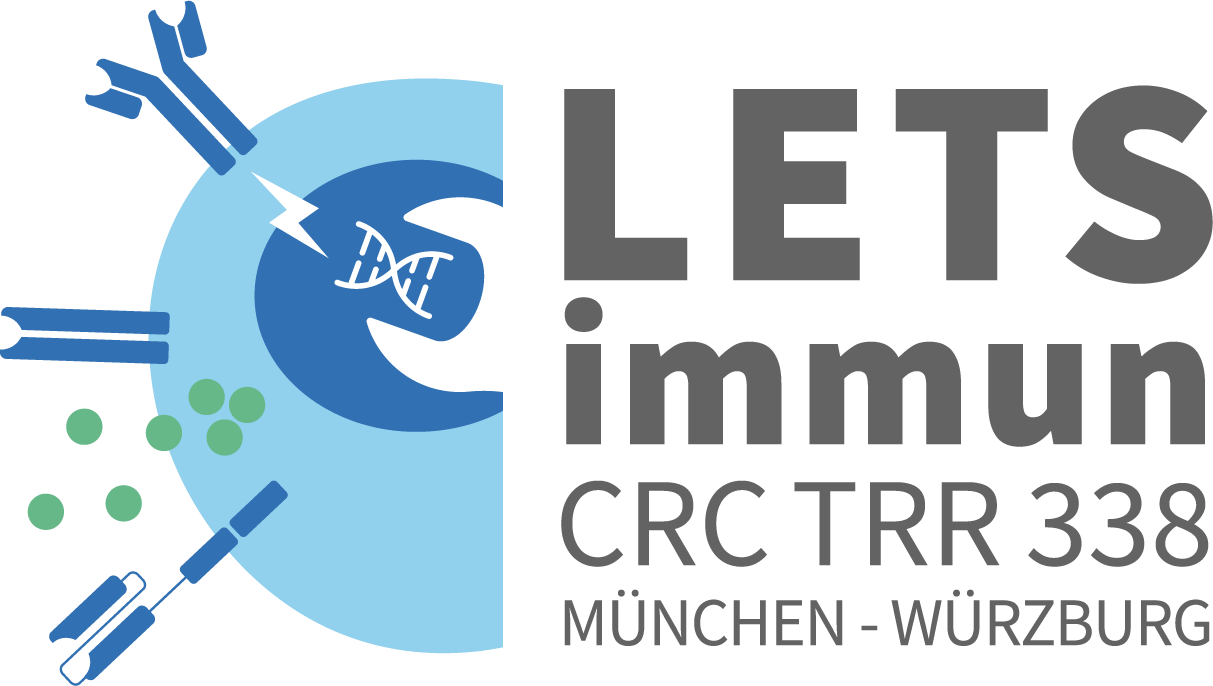Title
Metabolic reprogramming to optimize the cellular fitness and function of engineered T cells
Research Area
Immunology, Medicine, Immunometabolism
Project Summary
Metabolic reprogramming is a hallmark of immune cell activation. Key metabolic pathways such as glycolysis, oxidative phosphorylation and lipolysis not only provide energy and building blocks for the synthesis of macromolecules but are also pivotal regulators of the fate and fitness of immune cells. Thus, engineering metabolic pathways of lymphocytes including chimeric antigen receptor (CAR)-expressing T cells represents a promising strategy to augment and optimize immune cell function for therapeutic purposes.
e.g. in obesity and diabetes, shape the composition and functionality of cytotoxic lymphocytes subsets. Therefore, we will systematically explore the expression profiles of metabolic enzymes and transporters (METs) and the metabolic phenotype of different murine and human lymphocyte subsets as well as CAR T cells with regard to metabolic pathologies of the host. Functional characterization of selected METs in murine and human (CAR)
T cells will identify novel molecular targets for advanced metabolic T cell engineering using CRISPR/Cas9-mediated genome editing and ectopic overexpression strategies.
Project-Related Publications
Theurich S, Tsaousidou E, Hanssen R, Lempradl AM, Mauer J, Timper K, Schilbach K, Folz-Donahue K, Heilinger C, Sexl V, Pospisilik JA, Wunderlich FT, Brüning JC. IL-6/Stat3-Dependent Induction of a Distinct, Obesity-Associated NK Cell Subpopulation Deteriorates Energy and Glucose Homeostasis. Cell Metab. 2017; 26(1):171-184.e6.
Xu E, Pereira MMA, Karakasilioti I, Theurich S, Al-Maarri M, Rappl G, Waisman A, Wunderlich FT, Brüning JC. Temporal and tissue-specific requirements for T-lymphocyte IL-6 signalling in obesity-associated inflammation and insulin resistance. Nat Commun. 2017; 8:14803.
Wensveen FM, Jelenčić V, Valentić S, Šestan M, Wensveen TT, Theurich S, Glasner A, Mendrila D, Štimac D, Wunderlich FT, Brüning JC, Mandelboim O, Polić B. NK cells link obesity-induced adipose stress to inflam-mation and insulin resistance. Nat Immunol. 2015; 16(4):376-85.
Theurich S, Rothschild SI, Hoffmann M, Fabri M, Sommer A, et al. Local Tumor Treatment in Combination with Systemic Ipilimumab Immunotherapy Prolongs Overall Survival in Patients with Advanced Malignant Melanoma. Cancer Immunol Res. 2016; 4(9):744-54.
Ataide MA, Komander K, Knöpper K, Peters AE, Wu H, Eickhoff S., Gogishvili T, Weber J, Grafen A, Kallies A, Garbi N, Einsele N, Hudecek M, Gasteiger G, Hölzel M, Vaeth M, Kastenmüller W. BATF3 programs CD8 T cell memory. Nat. Immunol. 2020; 21:1397-1407
Vaeth M, Kahlfuss S, Feske S. CRAC channels and calcium signaling in T cell-mediated immunity. Trends Immunol. 2020; 4906(20)30149-6.
Vaeth M*, Maus M*, Klein-Hessling S, Freinkman E, Eckstein M, Cameron S, Turvey SE, Serfling E, Berberich- Siebelt F, Possemato R, Feske S. Store-Operated Ca2+ Entry Controls Clonal Expansion of T Cells through Metabolic Reprogramming. Immunity 2017; 47(4):664-679. (*contributed equally)

